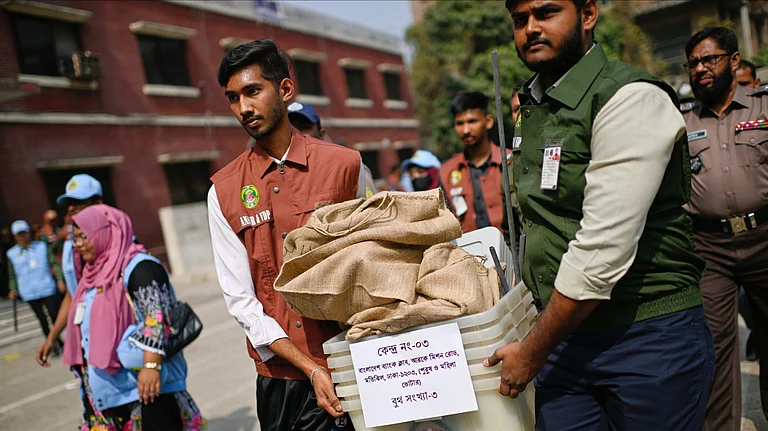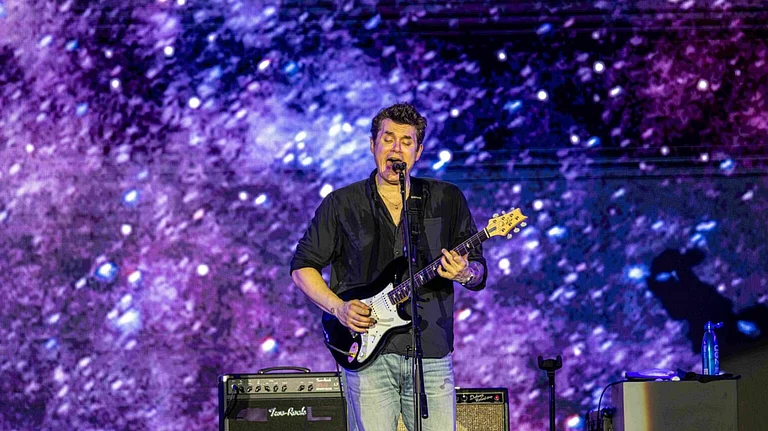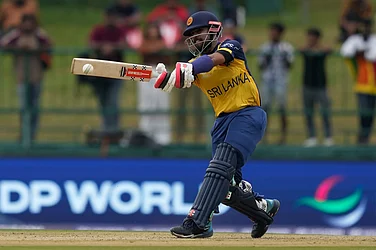When Indian cricketers play Pakistan, they carry healthy rations of tact in their kit bags. Playing Pakistan means walking a fine line between keeping things civil and keeping the big picture in mind.
Before every big game between the two nations, players, politicians and administrators tell combustible masses that sports and politics don’t mix. But the reality is that with a history as bloody as India-Pakistan, it is naïve to expect people to believe that it is just a cricket match when the two sides play.
Sachin Tendulkar made his international debut against Pakistan in 1989. He was 16, relatively innocent to the ways of the world. Most Pakistani players were gracious to him and he felt comfortable there. But on the very first day of his career, the reality of India-Pakistan relations became clear to him. A spectator in Karachi entered the field, abused Kapil Dev and Manoj Prabhakar, and then got into a scuffle with K Srikkanth, the Indian captain.
“The truth is that it was much more than a cricket match that was being played between the two teams. The political history of partition has always cast a pall over India-Pakistan cricket and it was my first taste of this unfortunate reality,” Tendulkar wrote in his autobiography, Playing It My Way.
The rivalry started in 1952, and till the 1980s, Pakistan loomed large in our psyche as a mentally stronger team, a perception solidified after Javed Miandad’s sensational last-ball six in Sharjah in 1986.
But over the last three decades, the shoe has been on the other foot. India have won seven of their last 10 ODIs against Pakistan, and six of nine T20 Internationals. In prestigious ICC (International Cricket Council) events, including the World Cup, India’s domination of their one-time nemesis has been emphatic. They have won 13 out of 18.
However, Pakistan won in style at the 2021 T20 World Cup. That has spiced up the Asia Cup encounter on Sunday evening.
Thus, despite the passage of time and the predictability of their recent matches, India against Pakistan remains a big game. The reasons are known to us. Partition, as mentioned by Tendulkar, is one. The other is the continuing political tension and acts of terrorism from the other side, such as the 2008 attacks on Mumbai.
“It’s always been very intense, and for obvious reasons,” Nilesh Kulkarni, the tall left-arm spinner from Mumbai who played Pakistan twice in quick succession in the 1997-98 season, told Outlook. “As neighbouring countries with such a history, you grow up with that patriotism, and when you go out on the field it automatically gives you that extra boost to make sure that you do not lose against Pakistan. That puts A) Pressure and B) responsibility, to make sure that you give more than 100 per cent.”
That year, the Sahara Cup in Toronto preceded the Pakistan tour. Within two weeks, the setting changed from sylvan Canada to dusty Hyderabad (Sind), Karachi and Lahore. India romped to a 4-1 win in Toronto. After reaching Pakistan, they sensed that Pakistan were desperate for revenge. This, in turn, made them more determined to beat Pakistan in their den.
“The feeling we got was that Pakistan did not want to lose against India in Pakistan. And for us [the feeling was], ki yaar, Pakistan me jaake inko haraana hai (we want to beat them in Pakistan).”
Across generations, the man on the street has seen India-Pakistan matches through the prism of nationalism. Vinod Kambli and Bigg Boss are not the first things that come to mind when searching for insights into international relations, but Kambli once shared a revealing anecdote on the show, which captured how much a win or loss to Pakistan means for India as a country.
If India won, Kambli said, the customs and immigration officials back home would be all smiles and wave the players through. If India lost, it would be the opposite. Chetan Sharma, of whose bowling Miandad hit the last ball six, suffered barbs and humiliation for years from his own countrymen.
Kulkarni never had to face what Sharma did, but once got a taste of the common man’s disgruntlement with the Indian team, especially if they lost to Pakistan.
“I was travelling in a cab and the taxi driver told me, ‘Kya saab, hum log kaam dhanda chhodke India-Pakistan match dekhte hai. Aur aap log haar jaate ho’. (What is this, sir? We leave our work and watch India vs Pakistan, and then you guys lose.) The emotions go to that level, where even a taxi driver takes the liberty of criticising you,” he said.
For a brief honeymoon period from 2004 to 2006, the series between the two countries were played with warmth, and in the spirit of ‘Aman ki Asha’. Both governments were keen to turn over a new leaf. Pakistan hosted two series in this phase, India one. But even during these highly-publicised, government backed schmaltz fests, with carpets gifted and kebabs and nihari enjoyed, with no effort spared on security and hospitality, there were tense episodes.
Ratnakar Shetty, the former BCCI CAO (Chief Administrative Officer), travelled to Pakistan with the team in the 2003-4 series. He wrote in his memoir, On Board: My Years at BCCI, “We reached Lahore the next morning and got the news that rocket launchers had been fired in Peshawar after the game (after India’s defeat). This was alarming. First the truck (with explosives, near the American embassy in Karachi, not far from the Indian team’s hotel) and now rockets in Peshawar. Would we run out of luck [with security] as the tour went on?”
So interwoven is violence with the India-Pakistan narrative that President Musharraf made an amusing, but decidedly undiplomatic, joke about it, at a tea he hosted for the Indian team. The rich spread of food on offer, he said, were “weapons of mass destruction.”
At least there were no smartphones then. Now, everyone is armed with a grenade called social media. That has made the players’ job much harder. Says Kulkarni, “The scenario today is very sensitive. The eruption of the digital world has changed the dimension. Everything is scrutinized with a different lens. It’s like a pressure cooker situation. You are sitting on the gas burner.”


























